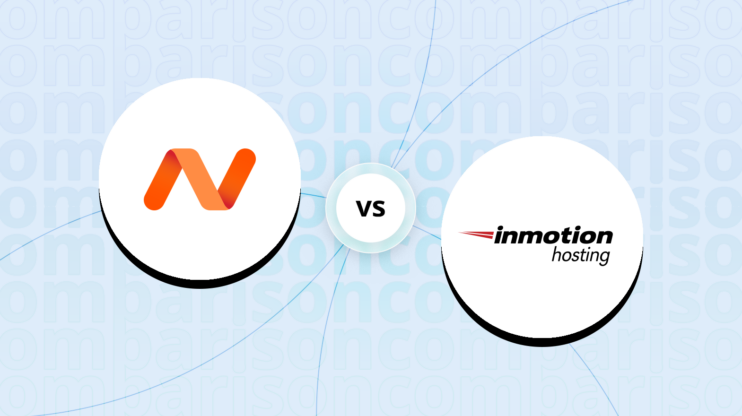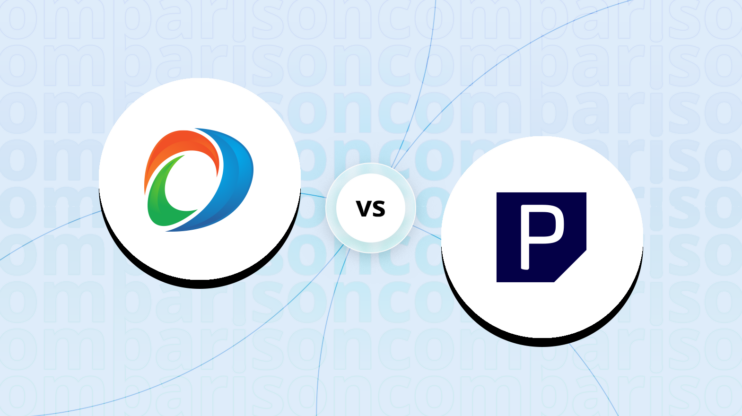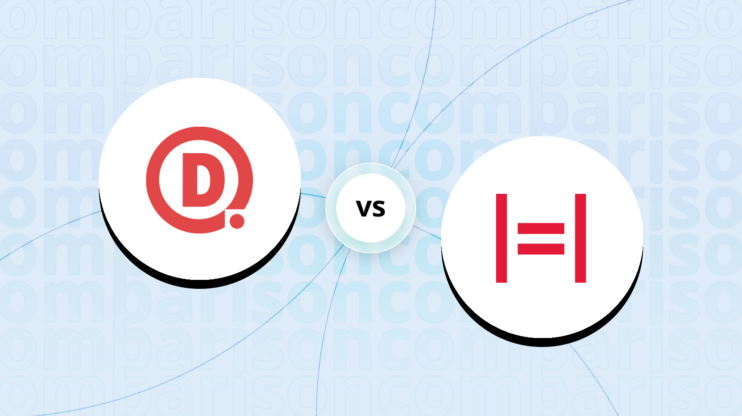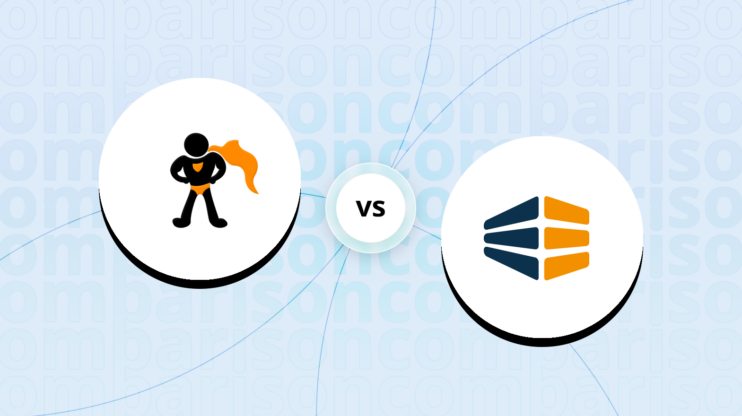Bluehost vs Pressidium: Final verdict
Looking over Bluehost vs. Pressidium, both offer distinct advantages suited to different types of users, but Pressidium has the edge due to its advanced features and specialized WordPress hosting.
Pressidium (Overall grade: 8.6)
offers exceptional managed WordPress hosting with enterprise-grade features, making it ideal for high-traffic and multimedia websites. Its highly available N-Tier infrastructure, dynamic load balancing, enterprise-grade SSD storage, and robust security measures give it a significant edge in performance and reliability. The service excels in providing comprehensive server management, automated backups, a powerful CDN, and advanced security features, including real-time threat prevention. While it lacks a built-in website builder and native email hosting services, its specialized environment, detailed analytics, and excellent customer support from WordPress engineers make it an excellent choice for agencies and enterprise clients.
Bluehost (Overall grade: 8.2)
excels in offering a range of hosting solutions, including shared, VPS, dedicated, and cloud hosting, making it highly versatile for users with varied needs. It stands out for its user-friendly features like free AI tools for site creation, a free domain for the first year, and built-in CDN and SSL certificates. This makes it a solid option for beginners and those planning multiple websites. Though it provides good uptime and decent performance, it falls short in comparison to Pressidium’s advanced infrastructure and security measures. Mixed customer feedback also highlights variability in support quality. For users seeking extensive hosting options with a focus on ease of use, Bluehost remains a competitive choice.
 Overall grade:8.2 |
 Overall grade:8.6 |
|
|---|---|---|
| Uptime and Availability | 9.0 | 9.2 |
| Hosting Performance | 8.9 | 9.3 |
| Hosting Security | 8.1 | 9.5 |
| Price | 8.1 | 8.7 |
| Hosting Features | 7.0 | 5.5 |
| Ease Of Setup | 8.6 | 9.0 |
| User Management | 8.0 | 8.9 |
| Customer Support | 7.9 | 8.8 |
| User feedback | 3.5/5 | 4.8/5 |
Hosting types offered
Both platforms provide a variety of hosting types, each designed to meet the different needs of users.
 |
 |
|
|---|---|---|
| Shared hosting | ||
| Cloud hosting | ||
| WordPress hosting | ||
| Ecommerce hosting | ||
| VPS hosting | ||
| Dedicated hosting |
Although both offer a variety of hosting plans tailored to different needs, in
certain cases, one platform may prove to be more suitable.
Detailed comparison
Uptime and availability
Evaluates the average uptime statistics, uptime guarantee and overall availability of the hosting
provider
Score Components:
- Uptime percentage (30%): evaluates the uptime statistics in given period of time
- Uptime guarantee (20%): Assesses if the platform offers an uptime guarantee and
whether the actual uptime matches the promised guarantee. - General performance (25%): Evaluates how fast is the average response time and overall
it’s stability. - Responsiveness (10%): Adaptability to different devices and screen sizes.
- Availability (25%): Reflects the total downtime and number of outages.
 9.0
9.0
 9.2
9.2
🏆 Winner Pressidium: Designed for ultimate uptime and availability with enterprise-level features.

Pressidium® Managed WordPress Hosting stands out due to its advanced architecture and fault-tolerant server clusters. The high availability N-Tier infrastructure ensures no single point of failure, offering exceptional uptime during traffic spikes. Pressidium also provides comprehensive server management, daily automated offsite backups, and 24x7x365 real-time monitoring.

Bluehost offers good uptime generally ranging from 99.63% to 100% in various tests, coupled with decent server response times and cloud hosting guarantees. It also provides an SLA that credits users for any network downtime. However, it falls short compared to Pressidium’s sophisticated architecture and dedicated infrastructure.
Which one has better hosting performance?
Score Components:
- Hosting speed (30%): This includes SSD quality, Load times, PageSpeed score ranges,
additional information on website speed, built-in plugins for performance enhancement, available caching
methods, and CPU/RAM options - CDN (20%): Considers whether CDN is available or not, whether it’s free or paid, and
the quality of the CDN service - Available data centers (30%): Evaluates the number of data centers and their locations
globally. - Scalibility (20%): Looks at whether elastic scaling is available, the process required
to scale (manual upgrade vs. automatic scaling), the presence of dedicated servers, and the costs
associated with scaling.
 8.9
8.9
 9.3
9.3
🏆 Winner Pressidium: Superior in performance, reliability, and scalability.
When it comes to general performance, Pressidium stands out with its high-performance WordPress hosting, dynamic load balancing, enterprise-grade SSD storage, and multilayer adaptive caching. The service also offers a robust Enterprise CDN powered by HTTP/3, which ensures optimized content delivery. On the other hand, Bluehost boasts impressive speeds with its world-class infrastructure, SSD storage, and built-in CDN. Both offer a global spread of data centers, but Pressidium provides more advanced data center technology, fault-tolerant architecture, and extensive edge locations.
Website Speed
Pressidium leads in website speed with several cutting-edge features such as dynamic load balancing, SSL acceleration, and full HTTP/2 support. These elements contribute to faster load times and better performance metrics. Additionally, its enterprise-grade SSD storage and adaptive caching further enhance speed. Bluehost also offers excellent speed with its SSD storage and optimized infrastructure, but it slightly lags behind due to the less advanced caching techniques and CDN when compared to Pressidium.
Scalability
Pressidium excels in scalability with its highly-available load-balanced architecture, automatic scalability features, and dedicated account managers for enterprise plans. It also includes high-end disaster recovery and availability options, making scaling straightforward and reliable. The starting cost for Pressidium’s enterprise plans is $790 per month. Bluehost offers scalable VPS and dedicated hosting solutions with increased CPU frequency, but it requires upgrading plans manually for scaling. Pricing for scaling in Bluehost’s dedicated hosting varies, and specific costs are not disclosed.
Which one has better security features?
and regulatory requirements
Score Components:
- Technical security measures (40%): This includes encryption, firewalls, DDoS
protection, secure configurations, server monitoring, access control and availability of security addons
(e.g Sitelock security). - Operational security measures (30%): Encompasses data privacy, backups and data
redundancy. - Compliance and certifications (20%): Adherence to legal and regulatory requirements
(e.g., GDPR, HIPAA) and possession of certifications (e.g., ISO 27001, SOC 2). - Business and reliability (10%): Factors in the provider’s reputation, uptime
guarantees, and customer support.
 8.1
8.1
 9.5
9.5
🏆 Winner Pressidium: Pressidium offers a secure and highly reliable hosting environment with superior security measures and a comprehensive range of compliance certifications.
Technical security measures:
Both Bluehost and Pressidium provide free SSL certificates and utilize up-to-date PHP versions, but there are distinct differences in their offerings. Bluehost includes automated daily backups, DDoS protection, a web application firewall, and 2-factor authentication as part of their plans. On the other hand, Pressidium offers more advanced security measures like real-time threat prevention, managed web application firewall, bad-bots filtering, and automatic malware removal. In addition, Pressidium also provides SFTP-only service and multiple SFTP accounts, which enhance overall security.
Operational security measures:
Bluehost has automated daily backups, malware scanning through SiteLock, and automated WordPress updates. It provides email security features like spam filters, antivirus, and phishing protection. Pressidium, on the other hand, emphasizes real-time threat prevention, free malware removal, and highly secured storage on Amazon AWS S3. Pressidium also has a lock-down environment for enhanced security, multifactor authentication, and daily offsite backups with point-in-time recovery, which offers a robust layer of additional protection compared to Bluehost.
Compliance and certifications:
Bluehost complies with GDPR regulations but does not support PCI compliance for all accounts. It does offer PCI compliance support for VPS and Dedicated servers. Pressidium excels with an extensive list of certifications including ISO standards, PCI DSS, SOC 1, SOC 2 Type 2, SOC 3, and HIPAA. This gives Pressidium a significant edge in terms of compliance with a variety of regulatory requirements across multiple regions.
 |
 |
|
|---|---|---|
SSL certificate |
Free SSL and Premium SSL |
Free SSL Certificates |
Additional security features |
Automated daily backups, DDoS protection, web application firewall, 2-factor authentication, malware scanning, email security, file encryption |
Real-time threat prevention, managed web application firewall, bad-bots filtering, free malware removal, SFTP-only service, multiple SFTP accounts, multifactor authentication |
PHP versions |
PHP Workers (vCPUs) for Cloud plans |
Latest PHP versions available (up to PHP8.x) |
GDPR compliance |
Yes |
Yes |
HIPAA compliance |
Not specified |
Supported |
PCI compliance |
Supported for VPS and Dedicated Servers |
Supported |
Hosting features
Score Components:
- Domains (20%): Assesses the availability of a free domain, domain purchase options, and
pricing - Email (15%): Considers if the provider offers full email hosting, or is reselling
third-party service, and if the email is only transactional or not - Website builder (15%): Checks if website builder is available, and it’s user
friendliness and overall the level of customization allowed. - Staging environment (20%): Determines if a staging environment is available, allowing
for testing changes before going live. - FTP & SFTP accounts (10%): Evaluates if and how easily users can access FTP and
SFTP accounts - Git and SSH access (20%): Assess whether Git is integrated into the hosting service and
if SSH access is provided
 7.0
7.0
 5.5
5.5
🏆 Winner: Bluehost: Extensive Hosting Options with Robust Features
Both Bluehost and Pressidium offer a variety of hosting solutions catering to different user needs, but with distinct strengths. Bluehost excels in providing an extensive range of hosting types, including shared, VPS, dedicated, and cloud hosting. It is particularly user-friendly for website creation, with free AI tools for site creation and help, complemented by the convenience of a free domain for the first year. Additionally, Bluehost is highly accommodating for those planning multiple websites, offering generous storage options and free backups for the first year. The inclusion of a free CDN and SSL certificates further enhance the overall value, making it a strong contender for both beginners and experienced users.
Pressidium, on the other hand, specializes in managed WordPress hosting, offering advanced features like automated daily backups, staging sites, and robust security measures including a managed web application firewall and malware monitoring. It’s highly optimized for speed and performance, with enterprise-level SSD storage, dynamic load balancing, and a powerful CDN powered by HTTP/3. However, it lacks a built-in website builder, which might be a drawback for users new to website creation. Pressidium also offers unique features geared toward developer collaboration and detailed analytics, making it an excellent choice for those who require specific WordPress optimizations and a managed hosting environment.
 |
 |
|
|---|---|---|
Free domain |
Yes, for the first year |
No |
Free SSL |
Yes |
Yes, via Let’s Encrypt |
Email hosting |
Via Google Workspace |
No |
Website builder |
Yes, AI-powered |
No |
Staging environment |
No |
Yes |
FTP & SFTP accounts |
Yes |
Yes |
Git and SSH access |
Yes |
No |
Free backup |
Yes, for the first year |
Yes |
Money back guarantee |
Yes |
No |
a location.
As a result in rare cases the features mentioned here can differ from the ones you see on their websites.
Both providers support a range of users from beginners to experts with user-friendly website builders and WordPress staging areas. However, in terms of developer tools, both Bluehost and Pressidium offer robust options including SSH access, support for multiple programming languages, and Git for version control, thus appealing to developers looking for advanced capabilities.
Email services:
Bluehost provides professional email hosting through Google Workspace, offering robust features for users needing email campaigns and transactional emails. This flexibility can be invaluable for businesses that require comprehensive email solutions. On the other hand, Pressidium does not provide native email hosting services, which could be limiting for users who need integrated email campaigns. However, their focus on security and managed services may suit those prioritizing reliability and managed environments over built-in email functionalities.
Price
Score Components:
- Plan value (40%): What each pricing tier offers.
- Transparency and clarity (30%): Clearness of pricing structures.
- Flexibility of plans (20%): Range of options to suit different budgets.
- Hidden costs (10%): Additional expenses not included in the plan.
 8.1
8.1
 8.7
8.7
🏆 Winner Pressidium: It’s Streamlined Managed WordPress Hosting scores slightly higher overall, mainly due to the robust features included in their plans and the transparency of what’s included.
Evaluating the pricing of plans among various hosting providers can be complex due to their differing pricing and renewal strategies. Additionally, certain plans require annual commitments, which adds to the difficulty of making comparisons. The prices listed are based on monthly commitments; plans requiring annual commitments are indicated. Additionally, although some providers offer identical plans for WordPress and shared hosting, we have created separate tables for each to enhance clarity.
Bluehost offers a variety of hosting plans, including Shared, VPS, Dedicated, Cloud, and WooCommerce Hosting, each with various levels based on features and pricing. Prices for shared hosting start at $2.95/mo, whereas VPS hosting ranges from $18.99/mo to $59.99/mo and dedicated hosting starts at $79.99/mo. Pressidium, focusing primarily on Managed WordPress Hosting, has clear tiers ranging from $21/mo for a single site with limited storage, up to $790/mo for enterprise plans with unlimited sites and advanced security features. Pressidium’s enterprise plans offer superior support, automated backups, and HTTP/3 Enterprise CDN, making it a strong contender for more extensive WordPress hosting needs.
 |
 |
|---|---|
|
N/A
Value for price:N/A
|
Starter$21
1 site, 10GB storage, 50GB CDN bandwidth, 24/7 support, free migrations, automated backups, HTTP/3 CDN. Value for price:8.0
|
|
N/A
Value for price:N/A
|
Pro$42
3 sites, 20GB storage, 100GB CDN bandwidth, 24/7 support, free migrations, automated backups, HTTP/3 CDN. Value for price:8.3
|
|
N/A
Value for price:N/A
|
Growth$67
5 sites, 30GB storage, 200GB CDN bandwidth, 24/7 support, free migrations, automated backups, HTTP/3 CDN. Value for price:8.5
|
|
N/A
Value for price:N/A
|
Advanced$92
8 sites, 40GB storage, 400GB CDN bandwidth, 24/7 support, free migrations, automated backups, HTTP/3 CDN. Value for price:8.7
|
 |
 |
|---|---|
|
Basic Hosting$10.99
1 site, 10GB SSD storage, unmetered bandwidth, chat support, free domain, SSL, and backups for the first year. Value for price:7.8
|
N/A
Value for price:N/A
|
|
Plus$14.99
Unlimited sites, unmetered SSD storage, unmetered bandwidth, chat support, free domain, SSL, and backups for the first year. Value for price:8.0
|
N/A
Value for price:N/A
|
|
Choice Plus$18.99
Unlimited sites, unmetered SSD storage, unmetered bandwidth, chat support, free domain, SSL, and backups for the first year. Value for price:8.1
|
N/A
Value for price:N/A
|
|
Pro$28.99
Unlimited sites, unmetered SSD storage, unmetered bandwidth, chat support, free domain, SSL, and backups for the first year. Includes high traffic optimization. Value for price:8.3
|
N/A
Value for price:N/A
|
 |
 |
|---|---|
|
Cloud 1$79.99
1 site, 10GB SSD storage, 2 vCPU, 100% uptime, 24/7 priority voice support Value for price:7.8
|
N/A
Value for price:N/A
|
|
Cloud 10$109.99
10 sites, 125GB SSD storage, 20 vCPU, 100% uptime, 24/7 priority voice support Value for price:8.1
|
N/A
Value for price:N/A
|
|
Cloud 25$169.99
25 sites, 175GB SSD storage, 75 vCPU, 100% uptime, 24/7 priority voice support Value for price:8.3
|
N/A
Value for price:N/A
|
|
Cloud 50$249.99
50 sites, 225GB SSD storage, 150 vCPU, 100% uptime, 24/7 priority voice support Value for price:8.5
|
N/A
Value for price:N/A
|
Enterprise plans
Bluehost’s enterprise-level plans offer flexibility and a range of prices, suitable for websites requiring extensive resources. The Dedicated Hosting plans range from $79.99/mo to $119.99/mo with features like unmetered bandwidth and multiple IP addresses. Alternatively, Pressidium’s Managed WordPress Hosting focuses on enterprise-level WordPress sites with prices starting at $790/mo and offering unmatched performance, disaster recovery options, and advanced security features. Pressidium provides specialized support and comprehensive managed security perfect for businesses with a dedicated focus on WordPress.
Bluehost vs Pressidium: Ease of setup
platform.
Score Components:
- Site migration (25%): Assesses whether the provider offers tools for site migration,
either automated or manual, and whether these services are free or require a fee. - Admin panel usability (35%): Evaluates the type of admin panel provided, such as the
standard cPanel or a custom solution, focusing on its accessibility and user-friendliness for both
technical and non-technical users. - Setup features (20%): Examines the availability and ease of use of various setup
features, including FTP accounts, file managers, email account setup, PHPMyAdmin, and easy CDN
configuration. - Help center quality (20%): Measures the quality and accessibility of the provider’s
help center resources, including articles and tutorials.
 8.6
8.6
 9.0
9.0
🏆 Winner Pressidium: Offers a streamlined setup process with advanced migration tools.
Bluehost utilizes a custom AI-driven admin panel that emphasizes simplicity and user-friendliness. With its AI WonderSuite tools and guided setup, users can quickly create a functional website with minimal effort. The onboarding experience is enhanced with smart AI tools that make the creation process highly intuitive for both technical and non-technical users. Bluehost also features a comprehensive dashboard that makes it easy to manage your site and hosting environment, although it may not provide the granular control that advanced users might desire.

Pressidium on the other hand, offers an admin panel specifically designed for WordPress users, providing a more specialized environment. Its user-intuitive dashboard allows for managing various technical aspects such as PHP versions, SFTP logins, and website analytics from one centralized location. This setup is highly accessible and user-friendly, making it easy for even non-technical users to manage their sites effectively. Advanced users will appreciate the depth of control and functionality offered by Pressidium’s dashboard.
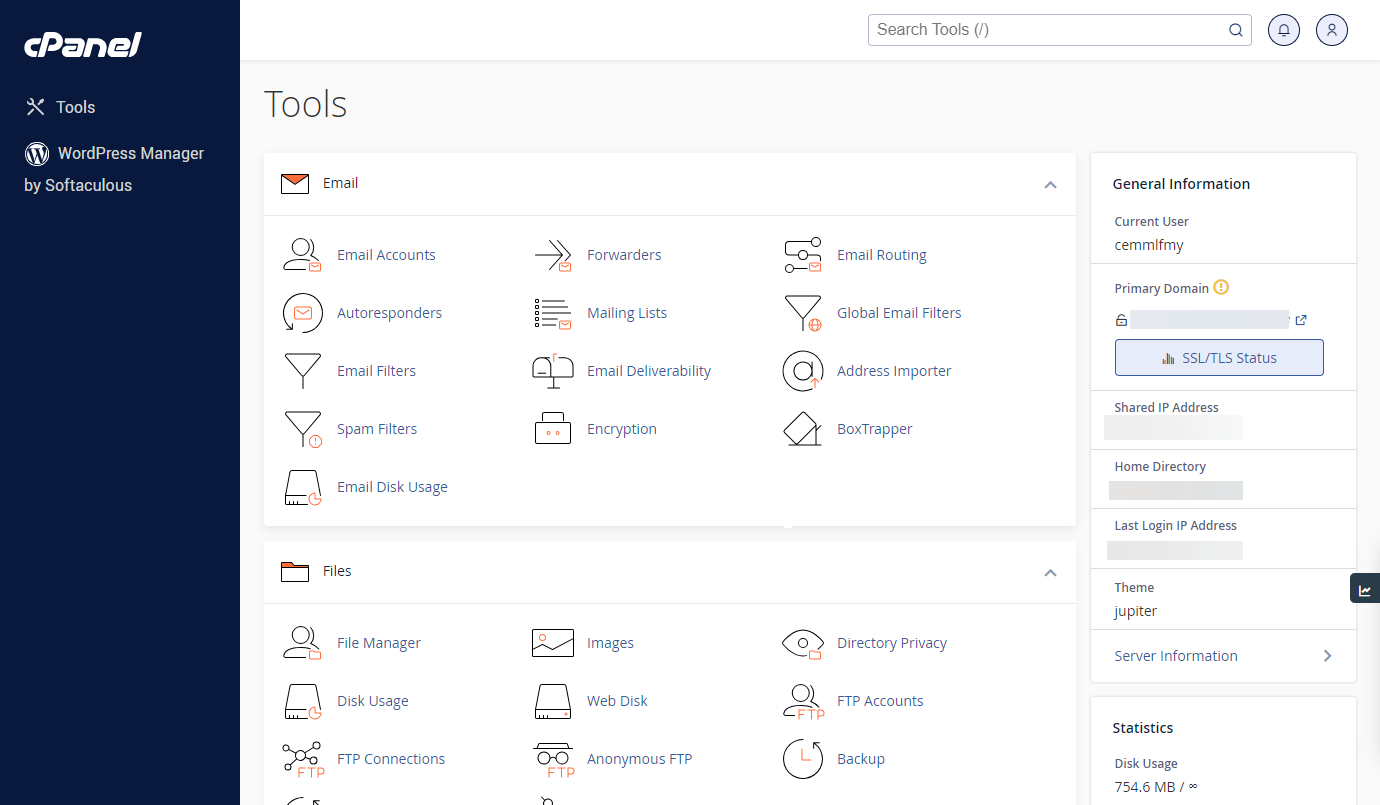
Both Bluehost and Pressidium offer tools for site migration. Bluehost provides automatic WordPress installation and guided setup processes, but does not focus heavily on free migration services. On the contrary, Pressidium stands out for its free migration services, automated migration tool, and a migration wizard accessible directly from the user dashboard. This makes Pressidium a more attractive option for seamless and cost-effective site migration.
In terms of help center resources, Bluehost provides a comprehensive knowledge base with articles addressing common questions and troubleshooting steps. The articles are easy to navigate and supplemented with 24/7 expert support via chat, phone, and email. Pressidium offers around-the-clock support from experienced WordPress engineers and an intuitive help center with how-tos and advice curated for their platform. Both providers offer extensive documentation, but Pressidium’s approach, with no tier levels, ensures that expert help is always available.
User management
accessibility.
Score Components:
- Role customization (40%): Flexibility in creating and defining user roles and
permissions. - Ease of management (30%): User interface and tools for managing users.
- Access control (20%): Effectiveness of access control measures for different user
levels. - Scalability (10%): Ability to manage a growing number of users efficiently.
 8.0
8.0
 8.9
8.9
🏆 Winner: Pressidium: Offers comprehensive user management features suitable for teams of any size with dynamic access controls.
Both Bluehost and Pressidium provide strong capabilities in managing user roles and permissions, but they cater differently to user needs. Bluehost allows for clear delineation among Primary Contact, Admin Contact, and Tech Contact, offering defined roles and responsibilities tailored to specific administrative levels. In contrast, Pressidium extends flexibility by providing role-based permissions and unlimited team members, making it adaptable for teams ranging from small to large entities. While Bluehost’s structure is more rigid, ensuring precise role definitions, Pressidium’s approach is more fluid, accommodating varied permission levels and enabling detailed activity logs for better transparency and accountability.
In terms of user interfaces and tools for managing users, Bluehost offers a straightforward process with a clear interface in the Account Manager to add or modify users and their roles. It requires just a few steps to invite new users and assign them various roles. Pressidium’s dashboard, however, provides a more holistic control, encompassing user role assignments, SFTP user management, and database administration through a single login. The comprehensive dashboard also aids in viewing activity logs, which enhances usability and collaborative efforts.
When it comes to access control measures and scalability, Pressidium stands out with its ability to manage an unlimited number of team members, which ensures that it can efficiently accommodate a growing user base. The platform’s role-based access control and detailed activity logs offer precise tracking and management, facilitating seamless team collaboration. Bluehost, while providing structured roles with specific permissions, may not scale as fluidly for larger teams due to its more rigid user role definitions. However, its ability to edit significant account settings through designated roles ensures high-level security.
Bluehost User Roles Table:
| Role | Description | Access highlights |
|---|---|---|
| Primary Contact | Unique role responsible for main communication and high-level decisions for the account. | Edit account holder/payment info, manage/add/delete user roles, purchase/renew products, and edit WHOIS info. |
| Admin Contact | Manages settings and permissions for other users and performs crucial account maintenance tasks. | Edit payment info, manage/add/delete user roles, purchase/renew products, and edit WHOIS info. |
| Tech Contact | Focuses on the technical aspects of the account. | Manage products/services, renew products, and edit WHOIS Admin and Tech user information. |
Pressidium User Roles Table:
| Role | Description | Access highlights |
|---|---|---|
| General User Roles | Allows for collaboration with varied permission levels. | Manage SFTP users, database administration, monitor activity logs, role-based access control, assign access permissions. |
| Website Manager | Assigns database access to third-party users. | Database access, manage backups, staging sites, plugin updates, and overall website control. |
Customer support
hosting provider.
Score Components:
- Support communication channels (30%): Measures the variety of customer support types
provided (live chat, chatbot, email, phone, etc.) - Availability (20%): Assesses the availability hours for each channel, including 24/7
support options. - Technical support quality (30%): Assesses whether the provider offers comprehensive
technical support, including hardware upgrades (e.g., HDD to SSD), software installations, and web
server configuration changes. - Enterprise support (20%): Checks if there are dedicated or priority support services
for enterprise-level customers.
 7.9
7.9
 8.8
8.8
🏆 Winner Pressidium: Offers high-quality support with experienced engineers who handle issues from start to finish.
 |
 |
|
|---|---|---|
| Phone support | ||
| Live chat support | ||
| Chatbot | ||
| Email/ticket support | ||
| Enterprise support (dedicated agent, priority support) |

Bluehost and Pressidium provide distinct customer support experiences tailored to different types of users. Bluehost offers 24/7 live chat and phone support, making it ideal for those who need immediate assistance. The platform also has a comprehensive knowledge base and provides expedited support for dedicated hosting issues, making it more versatile in terms of support channels. However, some users have reported mixed experiences with customer service, particularly citing long wait times and upselling.

Pressidium focuses on technical support provided by knowledgeable WordPress engineers, ensuring faster and more specialized responses. Unlike Bluehost, Pressidium does not offer live chat or phone support, but it excels in handling support tickets with a zero escalation policy. Enterprise customers benefit from a dedicated account manager, enhancing the overall support experience for high-tier plans. Overall, Pressidium’s consistent quality of support and specialized expertise make it the better choice for those seeking reliable WordPress hosting support.
Bluehost vs Pressidium: User feedback
Bluehost receives mixed reviews from users, highlighting several pros and cons. On one hand, customers appreciate the affordable pricing, ease of use, and good integration with WordPress, which makes it an attractive option for beginners and startups. The customer support team is often praised for being helpful and responsive, though experiences vary widely.
On the other hand, many users report significant drawbacks including frequent downtime, poor customer service, and recurring technical issues. Some have faced billing problems, confusing interfaces, and the need for substantial upcharges for additional features. The overall sentiment suggests that while Bluehost has its merits, it may not be the best choice for those requiring high reliability and robust customer support.
Pressidium comes highly recommended for its exceptional managed WordPress hosting services, particularly noted for outstanding customer support that is quick, knowledgeable, and often resolves issues on first contact. Users consistently praise the performance, security, and ease of website management, with some noting significant improvements over competitors like WP Engine and Kinsta. However, a few users mentioned initial difficulties with disabling certain plugins and the lack of some advanced features available in other platforms, though these are reportedly in development. Despite this, Pressidium’s reliable uptime and user-friendly experience make it a preferred choice for both personal and business-related websites.
Bluehost vs Pressidium: FAQ
Which platform is better suited for hosting WordPress websites?
Both Bluehost and Pressidium offer comprehensive WordPress hosting services, but Pressidium has the edge due to its specialized managed WordPress hosting with advanced features like dynamic load balancing, enterprise-grade SSD storage, and robust security measures. These features make Pressidium particularly suitable for high-traffic and multimedia WordPress websites.
Which hosting service offers better security features?
Pressidium offers more advanced security features compared to Bluehost, including real-time threat prevention, managed web application firewall, bad-bots filtering, and automatic malware removal. Bluehost provides automated daily backups, DDoS protection, a web application firewall, and 2-factor authentication, but lacks some of the specialized security measures that Pressidium offers.
Which platform offers better customer support?
Pressidium provides specialized support from experienced WordPress engineers with a zero escalation policy, ensuring faster and more effective issue resolution. In contrast, Bluehost offers 24/7 live chat and phone support, but user experiences vary widely, with some reporting long wait times and upselling. Overall, Pressidium’s customer support is more consistent and specialized.
What are the major differences in pricing and value between Bluehost and Pressidium?
Bluehost offers various hosting plans at different price points, with shared hosting starting at $2.95/month and dedicated hosting from $79.99/month. Pressidium focuses on managed WordPress hosting with plans starting at $21/month, going up to $790/month for enterprise-level features. Although Pressidium is more expensive, it provides advanced features and superior performance tailored for WordPress hosting.
Which service is more suitable for hosting a high-traffic website?
Pressidium is more suitable for hosting high-traffic websites due to its enhanced speed, dynamic load balancing, enterprise-grade SSD storage, and robust CDN. These features ensure exceptional performance and reliability during traffic spikes, making Pressidium an ideal choice for resource-demanding websites.
The making of this blog
We followed a clear, step-by-step process to write and research this article.









